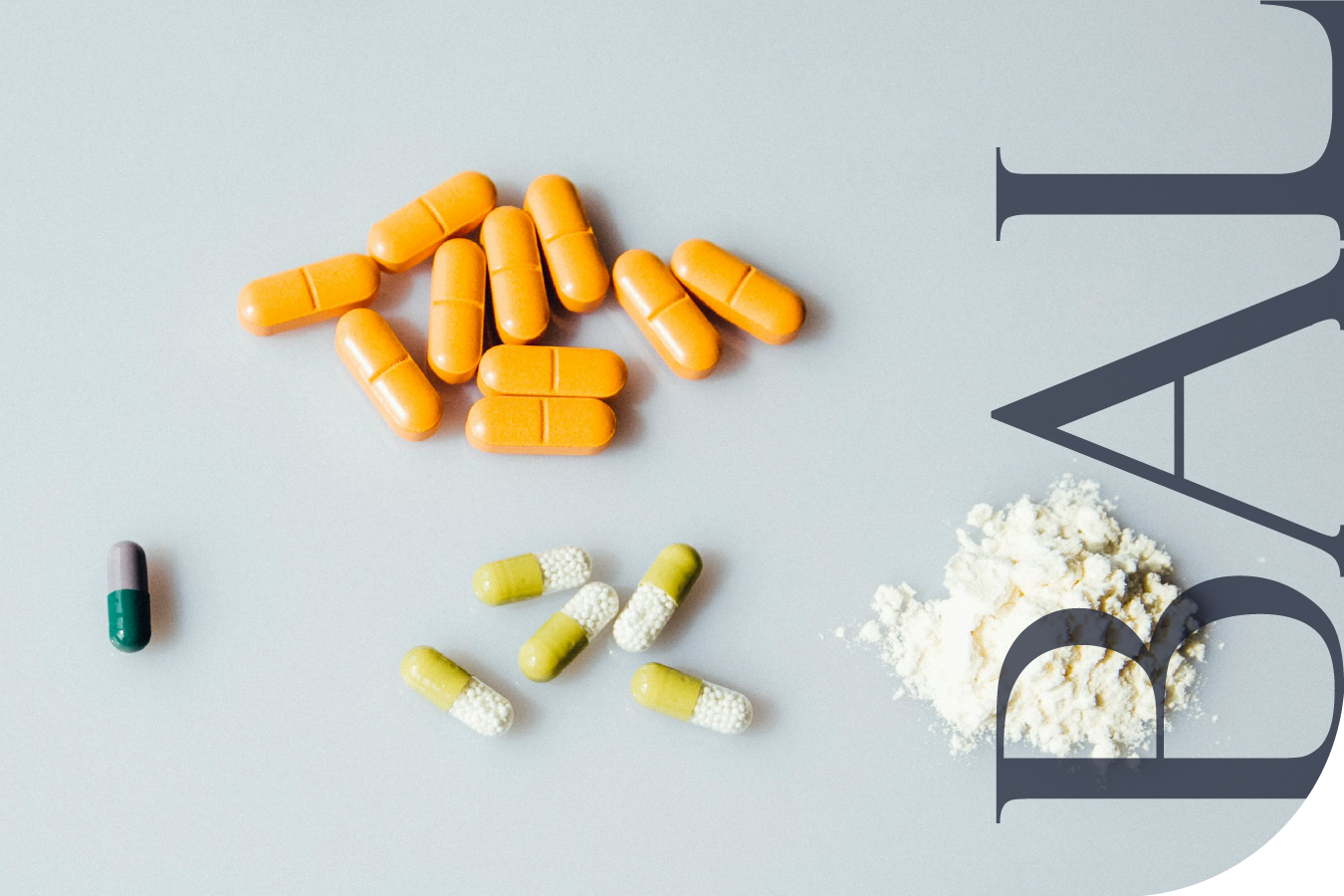
I. The Crime and Penalty of Drug Trafficking
Drugs or narcotics are substances that, when used by a person, produce narcotic or stimulating effects on the body and cause physical and psychological dependency. Article 188 of the Turkish Penal Code states: “A person who manufactures, imports, or exports drugs or narcotics without authorization or in violation of authorization shall be sentenced to imprisonment for a term of twenty to thirty years and a judicial fine of two thousand to twenty thousand days.”
If drugs or narcotics are brought into the country without authorization or in violation of authorization, whether through border crossings or areas outside customs ports, or if they are exported from Turkey, the crime of drug trafficking occurs. Additionally, the crime is also committed when drugs are manufactured.
The penalty for drug trafficking is between 20 to 30 years of imprisonment. Additionally, a judicial fine ranging from two thousand to twenty thousand days is imposed.
II. The Legal Value Protected by Combating Drug Trafficking:
Drug use threatens individuals’ health and poses a danger of economic, social, and moral decay to society. In the Turkish Penal Code, drug trafficking is regulated as a crime to protect public safety and health.
Furthermore, drug trafficking serves as a source for other crimes. The aim is to prevent drug users from committing crimes and to maintain public order.
III. Who Can Commit Drug Trafficking Crime?
Anyone can commit drug trafficking crime. Women, men, children, the elderly, or foreigners can be perpetrators. However, legal entities cannot be the perpetrators of the crime. The victim of drug trafficking crime is society.
IV. What Actions Constitute Drug Trafficking Crime?
The importation, manufacture, or exportation of drugs or narcotics constitutes the crime of drug trafficking.
For the crime to occur, the commission of one of these optional actions is sufficient. Additionally, it is not necessary for these actions to cause any harm.
1. Manufacturing Drugs
Manufacturing involves processing raw materials to produce a product. Manufactung drugs entails subjecting plants containing drugs or narcotics to chemical processes. It involves converting stimulant substances into other stimulants or narcotics or purifying raw materials.
Collecting plants containing drugs or narcotics is not considered manufacturing. Additionally, according to the Supreme Court, the process of drying the leaves of cannabis to produce powdered marijuana is not considered manufacturing because it is a simple process. For it to be considered manufacturing, the manufacturing process must alter the nature of the drug or stimulant substance.
The cultivation, harvesting, or stacking of plants such as opium, cannabis, and coca, which have drug or stimulant properties, is not considered manufacturing, and therefore, drug trafficking crime does not occur.
2. Importing Drugs
Importing drugs involves bringing or purchasing them from another country; it is an external purchase. Bringing any drug or narcotic substance into Turkey from abroad, whether through customs ports or borders outside customs ports, constitutes the crime of drug trafficking.
Moreover, the method of transportation of drugs or narcotics is not significant. Drugs can be transported by being carried on the body, swallowed, or placed in body cavities. All of these actions constitute drug trafficking crimes.
Importation can be carried out by bringing drugs into the country through customs ports, land, sea, or air borders. When drugs are brought into the country through customs ports, the moment of declaration to customs officials is crucial. If drugs are seized before the stage where they should be declared to customs officials, it constitutes not drug trafficking but rather the crime of transporting or possessing drugs or narcotics.
If an individual declares to customs officials that they do not have any drugs or narcotics, and drugs are subsequently found on them, it constitutes the crime of drug trafficking. In drug trafficking crimes, it is necessary to definitively establish whether the drugs were seized before or after the stage of declaration to customs officials.
The Supreme Court acknowledges that if drugs are brought into the country by means other than customs ports, such as by land, air, or sea, the crime of drug trafficking does not occur. However, in such cases, it is acknowledged that the crime of transporting drugs within the country has been committed. The punishment for this crime is imprisonment for a minimum of ten years.
Despite drugs being illegally transported through the territory of a country, if the drugs do not originate from that country and if that country is not the final destination for the drugs, it is considered a transit country. If drugs are passed through a country in transit, the individual is punished not for drug trafficking but for the crime of transporting drugs.
3. Exporting Drugs
Exporting drugs involves illegally taking drugs or narcotics out of the country. If drugs or narcotics are taken out of the country by land, air, or sea from an area outside customs ports, the crime of drug trafficking occurs. If drugs are exported through customs ports, the moment of declaration to customs officials, similar to importing, is taken into consideration.
The Supreme Court acknowledges that if drugs are sent to a foreign country via cargo, the crime of drug trafficking has occurred. When drugs are both manufactured and exported, two optional actions have occurred. In such cases, a single penalty is imposed.
V. Aggravating Factors
1. Type of Drug
When certain types of drugs or narcotics are trafficked, a harsher penalty is imposed.If trafficking is conducted with these types of drugs, the penalty is increased by one level;
- Heroin,
- Cocaine,
- Morphine,
- Hydromorphone,
- Synthetic cannabinoids and derivatives,
- Synthetic cathinones and derivatives,
- Synthetic opioids and derivatives,
- Amphetamine and derivatives.
Harsher penalties are imposed for these types of drugs because they tend to cause greater dependency, result in more severe harm, and can lead individuals to death compared to soft drugs.
2. Commission by Multiple Individuals or Criminal Organization Activity
If the crime of drug trafficking is committed by three or more individuals together, the penalty is increased by half. If it is committed within the scope of a criminal organization, the penalty is increased by one level.
It is important to determine whether the crime was committed as part of an organization or as complicity. The Supreme Court has established various criteria regarding this matter. To establish the commission of the crime of forming a criminal organization and the existence of the organization, the following criteria must be met:
- The minimum number of members being at least three,
- The presence of a hierarchical relationship among the members, even if loosely defined,
- The existence of an actual association around the intention to commit crimes, even if no crime is committed, and the nature of this association being continuous,
- The structure of the organization, including its membership size and available resources, being suitable for committing the intended crimes,
- The crimes intended to be committed through the organization’s structure must be clearly defined in terms of subject and victim.
3. Commission by Certain Professional Groups
If the crime of drug trafficking is committed by certain professional groups such as doctors, dentists, pharmacists, chemists, veterinarians, health officers, laboratory technicians, midwives, nurses, dental technicians, nursing assistants, the penalty is increased by half
VI. What Happens if Drug Trafficking Crime Remains at the Attempt Stage and is Not Completed?
If the crime is not completed, a reduction ranging from one-fourth to three-fourths of the penalty is applied. In cases where perpetrators of drug trafficking are caught with drugs within the customs area and their actions remain at the attempted stage of drug exportation, it is acknowledged that both attempted drug trafficking and completed transportation crimes have occurred.
Attempted manufacturing of stimulants may occur if the perpetrators have brought suitable materials and equipment to their residence for the crime. If it is determined that the seized materials and equipment are suitable and sufficient for drug manufacturing but the manufacturing has not yet commenced, the perpetrators are penalized for attempted drug trafficking.
If drugs or narcotics are brought to the customs but are seized by customs officials before the declaration stage, it is not considered an attempted drug trafficking crime. Instead, individuals are punished for the crime of possession, transportation, or shipment of drugs or narcotics.
VII. Can Multiple Individuals Commit Drug Trafficking Crime Together? Does the Penalty Increase?
Multiple individuals can indeed commit drug trafficking crime together. All individuals involved can be jointly liable for committing this crime, and those who aid and abet or incite others will also be punished. If the collaboration of perpetrators shows continuity, it is considered an organized crime.
In cases where the crime is committed within the scope of a criminal organization or by more than three individuals, aggravating factors will apply, resulting in a higher penalty as described above. Additionally, if individuals under the age of 18 are incited to commit drug trafficking crime, the penalty will be increased by one-third to one-half.
VIII. Reduction of Sentence for Effective Repentance in Drug Trafficking Crime
Effective repentance is a reason that results in individual immunity or a reduction of punishment after the completion of the crime. A person who participates in drug trafficking crime, before being notified by the authorities, if they report to the competent authority the whereabouts of other accomplices or the location where drugs or narcotics are hidden or manufactured, and if the information provided leads to the apprehension of the accomplices or the seizure of drugs or narcotics, no punishment is imposed on that person.
There are certain conditions for the person to avoid punishment:
- Firstly, the person reporting the crime must have participated in the crime.
- Secondly, the report must be made before the official authorities learn about the commission of drug trafficking crime.
- Thirdly, as a result of the information provided by the person making the report, the apprehension of the accomplices or the seizure of drugs or narcotics must occur.
For the person to avoid punishment, it is not necessary to report all the details of the crime, all the other accomplices, or all the locations where drugs or narcotics are hidden. Reporting one accomplice or one location where drugs are hidden is sufficient for the person to avoid punishment.
Send Mail : info@ballawyer.com
Call Us : +90 212 909 86 34
